At Glenfield Primary School, we support wellbeing for students through the following structures and programmes;
The teaching of Values and Positive, Ready for Learning Behaviour
Positive Behaviour for Learning (PB4L) is a journey of learning just as is learning a maths concept. Our school foster a positive environment where students can thrive. We teaching behaviour as we teach other subjects – we teach behaviour through the use of our school values.
“If a student does not know how to read, we teach them.
If a student does not know how to multiply, we teach them.
If a student does not know how to behave, we teach them.“
It’s all about:
-
Teaching values and positive behaviour: We weave important values and how to behave well into our everyday learning.
-
Consistent and caring approach: We have clear ways of dealing with behaviour, always remembering that every student is unique.
-
Empowering students: We encourage students to take ownership and make good decisions around the school.
By building stronger connections between home and school, PB4L helps us remove any hurdles that might stop students from engaging and achieving their best. It’s a long-term plan with a range of strategies, including school-wide approaches, targeted group programmes, and individual support when needed.
What is the Mitey Programme? 
At Glenfield Primary School, we are committed to nurturing the whole child, and that includes their mental wellbeing. That’s why we are excited to be part of the Mitey programme, a fantastic initiative designed to teach our tamariki about mental health.
Developed by the Sir John Kirwan Foundation, Mitey is a comprehensive, New Zealand-specific approach to mental health education for children in Years 1-8. It’s not just an “add-on” program; Mitey is woven into our everyday teaching and learning, aligning with the New Zealand Curriculum and the Mental Health Education Guidelines.
Mitey helps our students to:
- Understand their feelings: Learning to recognise and name a wide range of emotions.
- Build resilience: Developing the tools and strategies to cope with life’s ups and downs.
- Form positive relationships: Understanding how to connect with others and be a supportive friend.
- Know when and how to ask for help: Feeling comfortable seeking support when they need it.
- Look after their own wellbeing: Learning practical ways to nurture their mental health.
Mitey takes a whole-school approach, meaning it involves our students, teachers, staff, and even our wider school community. Through engaging lessons, activities, and discussions, Mitey helps our children develop the knowledge and skills to understand their own mental health and to support the wellbeing of others. We believe that by building strong mental health foundations in primary school, we are equipping our students with vital life skills that will help them thrive now and in the future.
For more information about the Mitey programme, please visit their official website: www.mitey.org.nz

Restorative Practices
Glenfield Primary is also a Restorative School. The essence of restorative practices is simple: that all people are happier, more productive and more likely to make positive changes in their behaviour when those in positions of authority do things with them, rather than to them or for them.
The programme works with all parties involved to resolve difficult and challenging situations through a restorative rather than punitive approach. Building, enhancing and restoring relationships is absolutely essential for a strongly connected, empathetic, functioning society.
The programme has four main stages. As a staff we use the following restorative structure:
Tell the Story
Tell me what happened?
What has led to us needing this conversation?
What were you thinking when you did that?
What have you thought about since?
How does that fit with our values here?
Explore the Harm
Who do you think has been affected? Who else?
In what ways?
What do you think it must have been like for them?
Was that a fair or unfair thing to do?
The right or the wrong thing to do?
Repair the Harm
What needs to happen to put things right?
What do you think_________ needs to hear/see from you now?
Is there anything else that you can think of that might help?
What will sorry look like in action from here?
Reach an Agreement
What do you need to stop doing, stay doing, start doing?
If this happens again – what could/would you do differently?
From now on how will you show the school/home values?
What do you need from me/us to support you?
Plan Follow Up
When shall we check in with you to see how you’re going?
What will happen if our agreed outcomes haven’t been reached?
Counselling Services
Our school employs a therapist to provide additional support for learners’ emotional wellbeing. Students can self-refer or be referred by teachers or parents. This service is bound by the counsellors’ code of ethics and is completely confidential.


